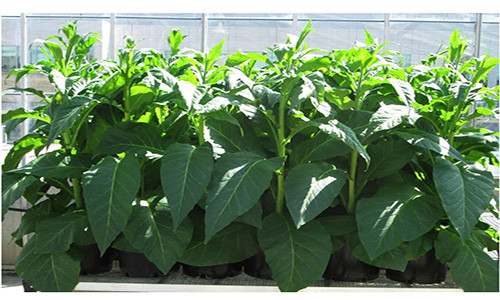Gene editing helps plants need less water
New gene editing technology allows plants to limit water loss, thereby requiring less water to grow normally.
|
The technology was successfully tested on tobacco plants. Photo:Los Angeles Times. |
Scientists at the University of Illinois, USA are developing a gene editing technology to help plants grow and thrive in water-deficient conditions. Experiments conducted on tobacco plants show that they almost reach normal size with only 75% of the required amount of water,AFPyesterday news
The team tweaked a gene that encodes the protein PsbS, which plays a crucial role in photosynthesis, converting light into nutrients. The protein PsbS triggers the opening and closing of microscopic pores on the leaf surface, called stomata.Open stomata allow plants to take in CO2 needed for photosynthesis, and also provide a pathway for water vapor to escape.
In genetically modified tobacco plants, increased levels of the PsbS protein stimulated stomata to close earlier than normal, limiting transpiration and thereby helping plants retain more water.Professor Johannes Kromdijk, lead author of the study, said the trial was successful.gene editing technologyon tobacco is a breakthrough and has potential for application on agricultural crops.
Today, about 1.2 billion people live in areas with water scarcity, a number that is expected to continue to increase due to global warming, which has a serious impact on agriculture. Research byScientists at the University of Illinois may have a solution for future agricultural crop production.


